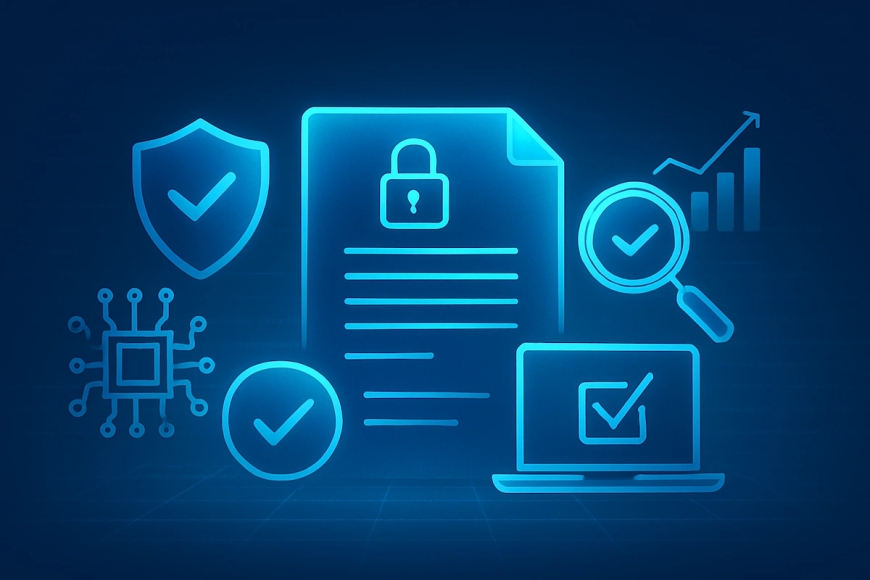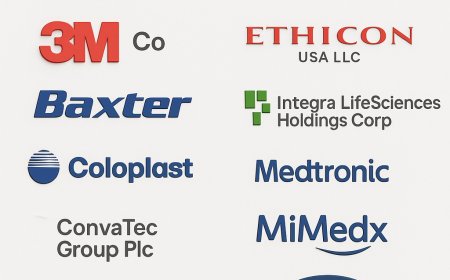Smart Contract Security Audit Services: What to Expect and Why It Matters

In the fast-evolving world of decentralized applications (dApps) and blockchain ecosystems, smart contracts have emerged as critical components driving automation, trust, and transparency. However, with the growing complexity of smart contracts comes the heightened risk of vulnerabilities and exploits. This makes Smart Contract Security Audit Services not just a precautionbut an essential part of the blockchain development lifecycle. A single flaw in a smart contract's logic can result in financial loss, reputational damage, and even legal complications. This blog explores what to expect from smart contract audits and why these services are indispensable for ensuring the integrity of any blockchain-based application.
Understanding Smart Contract Security Audits
What Is a Smart Contract Security Audit?
A smart contract security audit is a comprehensive review of the code within a smart contract to identify vulnerabilities, logical errors, and security risks before the contract is deployed on a blockchain network. The audit aims to ensure that the smart contract behaves as expected, cannot be exploited by malicious actors, and complies with best coding and security practices.
Why Smart Contract Audits Are Non-Negotiable
Given that smart contracts are immutable once deployed, any bugs or vulnerabilities that slip through can have irreversible consequences. From flash loan attacks to reentrancy exploits, we've seen major DeFi platforms lose millions due to overlooked flaws. A professional audit acts as a quality assurance layer that helps prevent such catastrophes.
What to Expect from a Smart Contract Audit Service
Initial Project Evaluation
The audit process begins with a thorough understanding of the project. The audit team reviews whitepapers, technical documentation, business logic, and dependencies to understand how the smart contracts are supposed to function within the ecosystem. This phase helps auditors tailor their analysis based on the contracts intended use cases.
Codebase Review and Static Analysis
Once the project scope is defined, the auditors dive into the code. They typically begin with static analysis, which involves scanning the source code for common vulnerabilities, such as:
-
Reentrancy bugs
-
Integer overflows/underflows
-
Access control misconfigurations
-
Gas limit inefficiencies
-
Logic inconsistencies
Static analysis tools like Slither, MythX, or Manticore are often used during this phase, followed by manual inspection by experienced developers to catch complex issues that automated tools might miss.
Dynamic Analysis and Simulations
In addition to static analysis, auditors may perform dynamic analysis. This involves executing the contract in controlled environments to simulate real-world interactions. By mimicking how users or external contracts would interact with the smart contract, auditors can identify vulnerabilities that only manifest during execution, such as front-running or denial-of-service (DoS) risks.
Unit Testing and Integration Review
Testing plays a vital role in ensuring contract reliability. Auditors typically review existing unit tests or write their own to assess how the smart contract handles edge cases, abnormal conditions, and unintended inputs. They also check how the contract integrates with other contracts or systems to ensure smooth interoperation and minimal attack surface.
Risk Assessment and Severity Classification
Every vulnerability uncovered during the audit is classified based on its severitycritical, high, medium, low, or informational. This classification helps development teams prioritize fixes. For example, a critical vulnerability might allow attackers to drain funds, while a low-severity issue may involve an inefficient use of gas.
Final Audit Report
At the end of the audit, the team compiles a comprehensive audit report. This report typically includes:
-
An executive summary
-
Methodologies used
-
Detailed findings with severity levels
-
Suggested fixes or mitigations
-
Verification status of previous issues (if re-auditing)
Some audit providers offer a public audit certificate that projects can showcase to boost credibility among users and investors.
Why Smart Contract Security Audit Services Matter
Safeguarding Financial Assets
The DeFi and Web3 space handles billions of dollars worth of assets. A security breach in a smart contract can lead to irreparable financial damage. Auditing acts as a preventive shield, ensuring that the code wont be exploited to steal funds, manipulate tokenomics, or alter the functionality of dApps.
Building Community and Investor Trust
In an industry plagued by scams and rug pulls, trust is a precious commodity. A third-party audit from a reputable smart contract audit company demonstrates a commitment to security and transparency. This can go a long way in attracting serious investors, retaining community support, and passing legal scrutiny.
Regulatory Compliance
As blockchain becomes more mainstream, regulatory bodies are beginning to scrutinize smart contract operationsespecially in DeFi and token offerings. An independent smart contract audit can help companies demonstrate due diligence, which is crucial for compliance with evolving regulatory standards.
Avoiding Reputational Damage
Reputation is everything in the crypto space. Even a minor bug can be magnified into a PR disaster. Projects that undergo thorough auditing are seen as more reliable and responsible, which helps in building long-term credibility and brand equity.
Choosing the Right Smart Contract Audit Company
Experience and Expertise
Not all audit providers are equal. Its crucial to work with a smart contract audit company that has proven experience in the blockchain ecosystem, especially in projects similar to yours. Review their past clients, testimonials, and the complexity of the projects theyve audited.
Methodologies and Tools
A reputable firm will clearly outline its audit framework, including both manual and automated approaches. Ask about the tools they use, their audit philosophy, and how they ensure the accuracy and depth of their analysis.
Transparency and Communication
The audit process should be collaborative. The best firms provide regular updates, clarify findings, and assist in the remediation of vulnerabilities. Choose a company that emphasizes open communication and is willing to walk your team through the findings.
Post-Audit Support
Some companies offer post-audit verification, where they re-examine the code after vulnerabilities are fixed to ensure all issues are resolved. Ongoing support and retesting are invaluable, especially for protocols that are rapidly evolving.
How Much Does a Smart Contract Audit Cost?
Variables That Affect Cost
The smart contract audit cost varies widely depending on several factors:
-
Code complexity and length
-
Number of contracts involved
-
Urgency of delivery
-
Reputation of the audit firm
-
Need for multiple audit rounds
On average, audit services can range from $5,000 to $100,000 or more for large-scale DeFi protocols. While the price might seem steep, the cost of an exploit or security failure can be exponentially higher.
Finding Cost-Effective Audit Solutions
While premium audit firms are often the best route for mission-critical contracts, newer projects or startups might consider modular audit solutions or open-source peer reviews. These can help balance quality and costthough nothing replaces a professional audit for high-stakes projects.
Smart Contract Audit Frameworks: Standardizing the Process
Industry-leading audit providers typically follow a structured audit framework, which ensures consistency and reliability. These frameworks may include:
-
OWASP Top 10 for Blockchain
-
DASP (Decentralized Application Security Project) guidelines
-
Custom security checklists
-
Project-specific test plans
Adherence to such frameworks helps auditors cover a wide range of vulnerabilities systematically and ensures the audit results are comprehensive.
Final Thoughts
As the blockchain space continues to grow in complexity and value, the importance of Smart Contract Security Audit Services cannot be overstated. Whether you're launching a DeFi platform, NFT marketplace, DAO, or tokenized asset, securing your smart contracts is foundational to your project's success. Audits are not just about checking boxestheyre about building resilient systems that users can trust.
By knowing what to expect and choosing the right smart contract audit company, you can ensure your project is secure, scalable, and credible. In a world where security incidents can make or break a blockchain initiative, a robust audit is not a luxuryits a necessity.


































